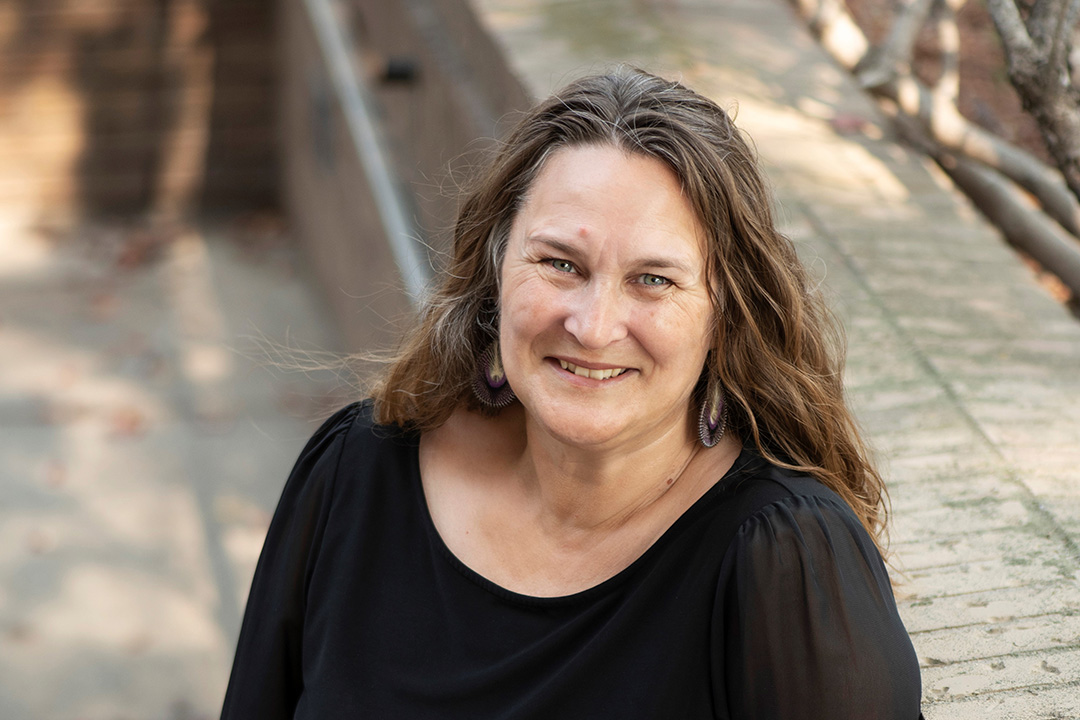
Corinne Schuster-Wallace to lead USask’s Global Institute for Water Security
Dr. Corinne Schuster-Wallace (PhD) is the new executive director of the Global Institute for Water Security (GIWS) at the University of Saskatchewan (USask).
Schuster-Wallace began a five-year term on September 1.
“I am excited and proud to be able to represent the many members of our water community here at USask,” she said. “We represent so many dimensions of water and water-related disciplines in our research, scholarly, and artistic works as well as in our teaching and service. I’m really looking forward to what we can accomplish together to continue to build on a pre-eminent water institute.”
Schuster-Wallace, who holds a BSc (Hons) from Leicester University (Physical Geography) and a PhD from Wilfrid Laurier University (Glacial Hydrometeorology), said her broad experience in water research in coupled systems approaches to water-related health and well-being can help bring together all types of research disciplines as it relates to water.
Schuster-Wallace joined the Department of Geography and Planning in USask’s College of Arts and Science in 2018 as an associate professor leading research in the areas of local water security and health, and water and sustainable development.
She was also the associate director of the pan-Canadian Global Water Futures (GWF) program since 2019, a research initiative led by USask alongside three key partners: Wilfrid Laurier, McMaster, and Waterloo universities.
Schuster-Wallace has set new goals for leading water research at USask and across the country.
“Water has always been my passion and it has taken me to many interesting places where I have met so many other like-minded people,” she said. “I have also had the opportunity to take on leadership roles in other places. We have an opportunity as an institute to re-imagine ourselves, to commit to equity, diversity and inclusion in our relationships and our research, and to serve our local communities, sectors, and governments in ways that can also support the global community.”
Schuster-Wallace has held several past positions, including senior research fellow, Water and Human Development, at the United Nations University Institute for Water, Environment and Health (UNU-INWEH), research associate in the School of Engineering at the University of Guelph, and a water-environment specialist for the Public Health Agency of Canada.
She has been published across many different media and consulted to the Provincial Commission of Inquiry (Part II) into the Walkerton, Ont., drinking water tragedy of 2000.
Having someone with her leadership and academic background to lead GIWS is something that USask Vice-President Research, Dr. Baljit Singh (PhD), is grateful for.
“Corrine brings an exceptional level of expertise to this position, and I am more than confident she will accomplish great things through her inclusive approach. Her appointment represents a new and exciting chapter for GIWS, and I am excited to witness the positive impacts she will have as she takes water research to new heights,” said Singh.
With water as a top research discipline and signature area of research at USask, Schuster-Wallace wants to encourage anyone interested in studying or pursuing water research, from any academic background, to engage with the water community in Saskatoon.
“We are a dynamic university within a vibrant community,” said Schuster-Wallace. “As our family realized when we moved here five years ago from Ontario, Saskatoon is a beautiful city that is centred around the South Saskatchewan River. And water research and training at the university are unparalleled, recognized internationally, as are many of our faculty, graduate students, and post-docs. I would say to anyone with a passion for water and for making a difference to engage with GIWS, especially at this critical time in our history when it comes to creating a better water future for everyone.”
Together, we will undertake the research the world needs. We invite you to join by supporting critical research at USask.
Article re-posted on .
View original article.
